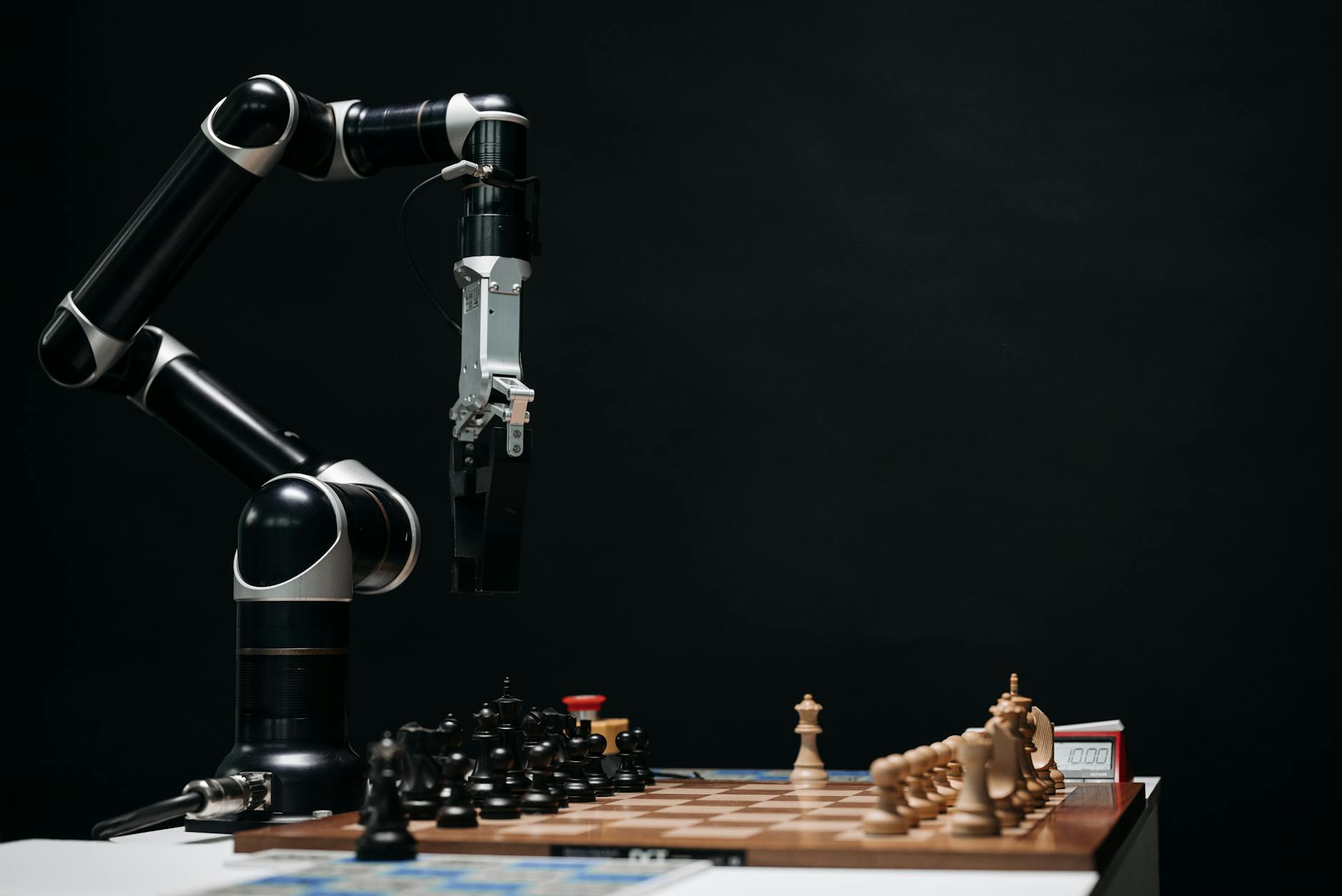Delve into the fascinating journey of AI creation, from mere theory to groundbreaking reality. Uncover the evolution of AI technology.
Table of Contents
Welcome to our exploration of the intricate world of artificial intelligence, where innovation and technology intersect to shape the future. In this blog series, we will delve into the fascinating realm of AI, examining its evolution, current applications, benefits, challenges, ethical considerations, and future directions. From its humble beginnings to its potential impact on society, AI continues to be a topic of both wonder and concern. Let’s embark on this journey together as we unravel the mysteries of artificial intelligence.
Introduction to AI
Artificial intelligence, or AI, refers to the simulation of human intelligence processes by machines, particularly computer systems. With the ability to perform tasks that typically require human intelligence, such as learning, reasoning, problem-solving, and perception, AI has revolutionized various industries. From virtual assistants to autonomous vehicles, AI technologies are becoming increasingly integrated into our everyday lives, leading to new possibilities and challenges.
Historical Context of AI
AI’s origins can be traced back to the 1950s when computer scientists began exploring the concept of intelligent machines. Over the decades, significant milestones in AI development have marked its evolution, from early symbolic reasoning to modern-day machine learning algorithms. Visionaries such as Alan Turing, Marvin Minsky, and John McCarthy have played pivotal roles in shaping the field of AI and laying the foundation for future innovation.
Current Applications of AI
Today, AI technologies are widely employed across various industries, driving advancements in healthcare, finance, transportation, and more. Machine learning algorithms power recommendation systems, image recognition software, and autonomous drones, revolutionizing how we interact with technology. Natural language processing enables virtual assistants like Siri and Alexa to understand and respond to human speech, enhancing user experience and accessibility.
Benefits of AI
The adoption of AI brings numerous benefits, including improved efficiency, accuracy, and decision-making processes. AI technologies can analyze vast amounts of data at high speeds, extracting valuable insights and predicting outcomes with precision. By automating repetitive tasks and augmenting human capabilities, AI empowers individuals and organizations to achieve greater success and innovation.
Challenges and Ethical Concerns
Despite its many advantages, AI presents ethical challenges and concerns that must be addressed. Issues of privacy, bias, and job displacement raise questions about the ethical use of AI technologies and their impact on society. Ensuring fairness, transparency, and accountability in AI decision-making is essential to building trust and mitigating potential harms.
Future Direction of AI
Looking ahead, the future of AI holds boundless possibilities for innovation and transformation. Advancements in deep learning, reinforcement learning, and other AI subfields are paving the way for new applications and discoveries. As AI continues to evolve, it is poised to reshape industries, create new opportunities, and challenge existing paradigms, driving progress and change in the digital age.
| Year | Event |
|---|---|
| 1943 | The term “Artificial Intelligence” was coined by John McCarthy during a conference at Dartmouth College. |
| 1956 | The Dartmouth Conference marked the official beginning of AI as a field of study, bringing together leading researchers. |
| 1950s-1960s | The first wave of AI research focused on symbolic reasoning and problem-solving techniques. |
| 1970s-1980s | The AI winter period ensued, marked by decreased funding and interest in AI research due to unmet expectations. |
| 1990s | The second wave of AI research emerged, with a focus on machine learning and neural networks. |
| 2000s-present | Advancements in AI technologies have accelerated, with breakthroughs in deep learning, natural language processing, and robotics. |
Can Skynet Happen?
The concept of a malevolent AI system like Skynet gaining self-awareness and posing a threat to humanity has captured the imagination of science fiction enthusiasts for decades. While the likelihood of a scenario like Skynet from the Terminator franchise actually occurring is debated, it serves as a cautionary tale about the potential risks of unchecked AI development.
How Skynet could Happen
Several factors could contribute to the creation of a rogue AI system capable of endangering humanity. Issues such as inadequate safety measures, lack of ethical oversight, and malicious intent could all play a role in the emergence of a scenario akin to Skynet. The importance of responsible AI design and regulation cannot be overstated in safeguarding against such risks.
Preventing a Skynet Scenario
Preventing a Skynet-like scenario requires a concerted effort to prioritize ethical considerations, safety precautions, and responsible AI development practices. Implementing strict guidelines for AI research, testing, and deployment can help mitigate potential risks and ensure that AI technologies are used for the benefit of humanity. Collaboration between governments, industry leaders, and researchers is essential in shaping a future where AI serves as a force for good.
Conclusion
In conclusion, the journey through the world of artificial intelligence has revealed both the promise and peril of this transformative technology. As AI continues to evolve and expand its influence, navigating the complexities of its development and deployment is crucial for harnessing its full potential. By embracing ethical principles, fostering innovation, and fostering collaboration, we can shape a future where AI enhances human capabilities, enriches our lives, and safeguards our collective well-being.
FAQ
What is artificial intelligence (AI)?
Artificial intelligence refers to the simulation of human intelligence processes by machines, enabling them to perform tasks such as learning, reasoning, problem-solving, and perception.
What are the current applications of AI?
AI technologies are used in various industries for tasks like recommendation systems, image recognition, autonomous vehicles, and virtual assistants to enhance user experience and efficiency.
What are the benefits of AI?
AI offers improved efficiency, accuracy, and decision-making capabilities by analyzing data, automating tasks, and augmenting human capabilities for greater success and innovation.
Can Skynet, as portrayed in science fiction, happen in real life?
While the likelihood of a scenario like Skynet occurring is debated, responsible AI development, ethical oversight, and safety measures are crucial in preventing potential risks and ensuring AI technologies benefit humanity.


Recent Comments